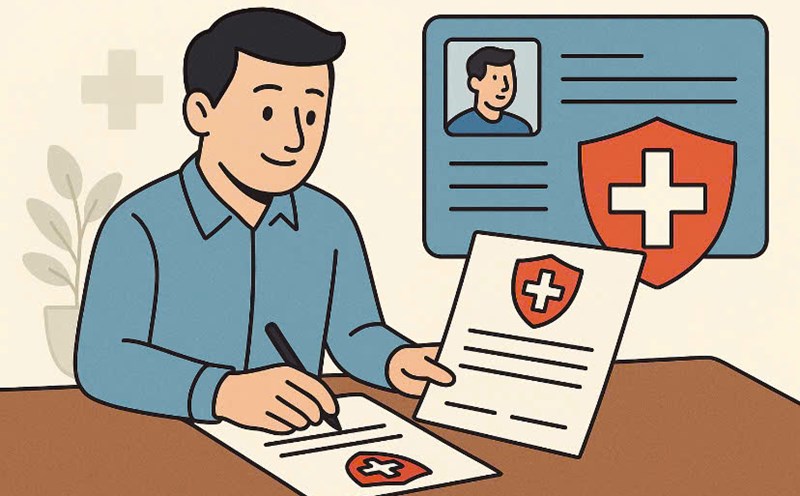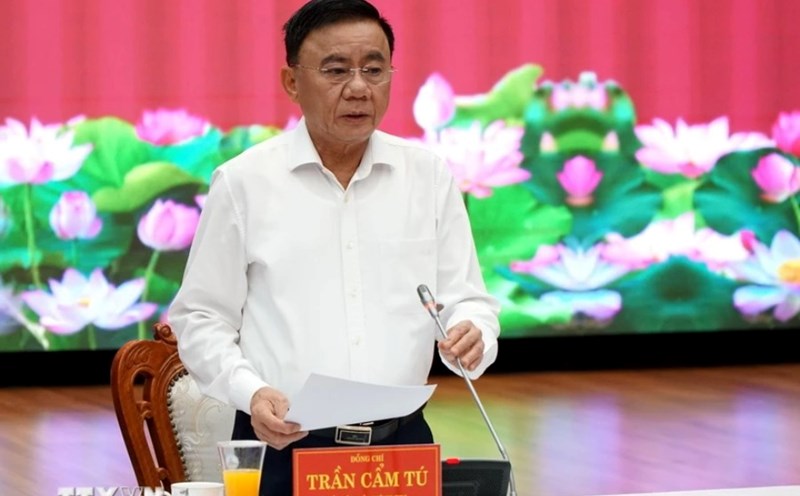From July 1, 2025, the amended Law on Health Insurance (HI) officially took effect, bringing many new benefits to health insurance participants.
According to statistics, the country currently has more than 95.5 million people participating in health insurance, reaching an coverage rate of 94.29% of the population. The expansion of the national route is an important step forward, helping people - especially workers far from home, students, and people who travel frequently - easily access quality healthcare services anywhere without worrying about losing their rights.
Previously, patients were only allowed to access health insurance (HI) examination and treatment at the district level and only within the province. If you go to another locality for medical examination and treatment without a referral letter, your health insurance benefits will be reduced or not paid.
In the near future, according to the new regulations, health insurance participants can examine and treat at any basic medical facility nationwide (formerly known as the district), regardless of administrative boundaries, but still enjoy all benefits according to the health insurance card.
For example, people with a health insurance card who register for initial medical examination and treatment in Ho Chi Minh City can still go to a district hospital in Hanoi for medical examination and treatment and will be paid by the health insurance fund as registered.
Health insurance participants are entitled to 100% health insurance when receiving medical examination at the initial registration location nationwide (regardless of province or city). Receive 100% health insurance when receiving inpatient treatment at basic health facilities nationwide.
Receive 100% health insurance when examining at basic or specialized medical facilities, if before January 1, 2025, these facilities were classified as district-level facilities.
However, this regulation only applies to cases of health insurance examination and treatment at medical facilities previously identified as district-level. For specialized facilities, to receive health insurance when examining and treating patients, patients must undergo referral procedures for expertise.
In case the health insurance participant arbitrarily goes to a specialized level for medical examination and treatment without a referral letter, the health insurance benefits will be paid according to the prescribed deduction level.
When receiving inpatient examination at a specialized level (no referral), only 40% of the health insurance level is enjoyed.
Outpatients at the specialized level are entitled to 50% of health insurance, according to the roadmap.
Boarding at the specialized level that used to be a provincial level (before January 1, 2025), health insurance participants will still receive 100% of the health insurance level if patients are hospitalized for treatment.
Thus, although the referral is expanded, if patients want to receive medical examination and treatment at provincial and central (deep-level) facilities and are not exempted from referral, they still need a valid referral letter to receive enough health insurance.
In particular, in cases of serious diseases and rare diseases (belonging to 62 diseases/groups of diseases according to the list of the Ministry of Health), patients are examined directly at a specialized level, do not need a referral letter and are still entitled to 100% health insurance right from the first examination.
In addition, health insurance participants are entitled to 100% of the benefits when examining and treating at any medical examination and treatment facility in case of emergency.











